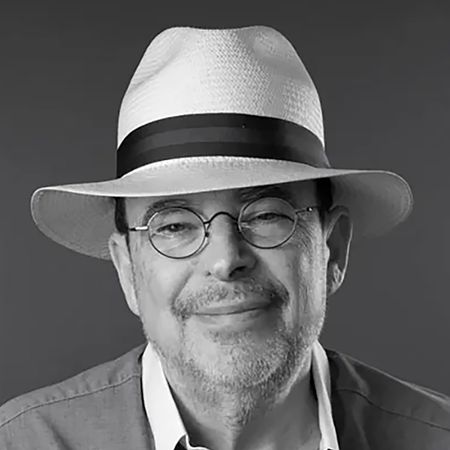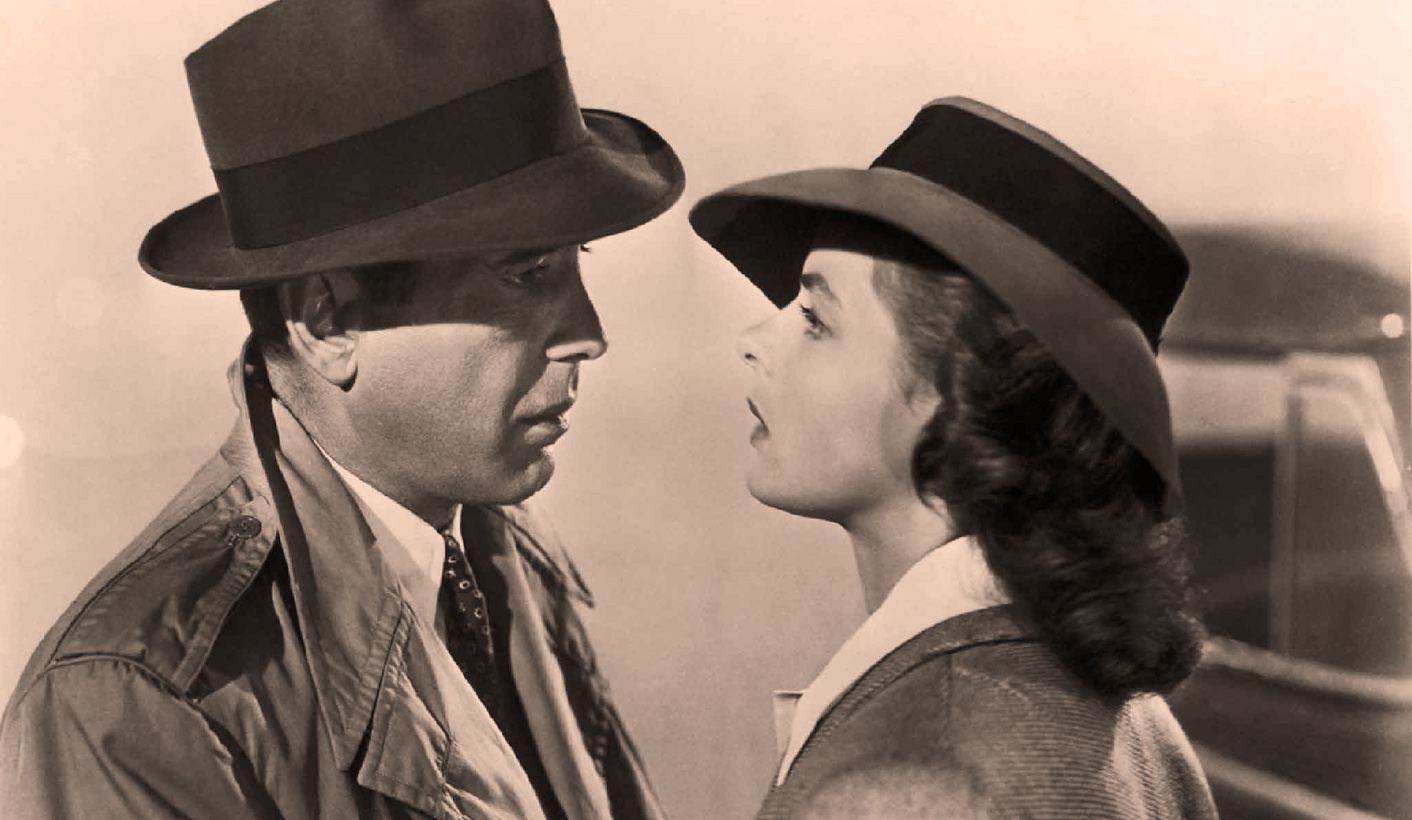The film Casablanca is 75 years old this week and, over time, it has become one of the best-loved films ever. Turned into a film script out of a run-of-the-mill play, Everybody Comes to Rick’s, from start to finish, the entire project was completed in just 11 months – a phenomenally quick pace for filmmaking. Nevertheless, despite the speed of its creation, the American Film Institute (AFI) now ranks it as the third-best flick of all time.
Except for a few scenes set in and around other parts of Casablanca, such as the French prefect of police’s office, or in a rival café/casino, and in those crucial flashbacks to better days in Paris until the German army rolled in, the film takes place almost entirely inside the confines of Rick’s Café. This is how it goes until those climactic, final moments at the airport. (In actuality, the film was made entirely on the Warner Brothers studio back lot with no effort to depict a more expansive setting for the drama’s action to play out).
Consequently, as the action in the film moves forward, the story conveys a claustrophobic sense of what an exile, a refugee, an escapee from the Nazi German conquests might well have felt as they pondered what was next for them, after fleeing Bulgaria or some other occupied territory. Moreover, with all the crosscurrents of a notionally non-occupied city (although effectively under the thumb of German overlords), the café harboured gamblers, swindlers, thieves, pickpockets, women of uncertain virtue, spies, the local Vichy French police, groups of German troops, émigrés, and refugees whose fortunes have been reduced to their last centime or final bit of jewellery.
And the whole thing is presided over by Rick Blaine (Humphrey Bogart), an American exile who had been a gun-runner to the beleaguered Abyssinian regime (and much else in his life), but who now runs his bar/restaurant/casino, Rick’s Café Americain, in Casablanca. With him is his trusty sidekick, Sam (the African-American actor and drummer Dooley Wilson), the black piano player who has been with him for years. (While Wilson sat at the piano, given that his instrument was the drum kit, someone else’s playing was dubbed in instead of his own attempts at the keyboard.)
Into Rick’s dissolute but reasonably stable life suddenly comes Ilsa Lund (Ingrid Bergman), Rick’s former lover in Paris, accompanied by her husband (oh no!) Victor Laszlo (Paul Heinreid), the improbably named Czech freedom fighter who had just escaped from a concentration camp. Oops.
A huge, complex love triangle now ensues, complete with various recriminations and thoroughly complicated by the fact that Ilsa clearly still has a thing for Rick. You can see it on her face every moment they are on screen together. There is also the fact that everybody in the bar, from the German officers singing and drinking, to refugees like Laszlo and Lund, is looking for those so-called “letters of transit” that one of the bar regulars, Ugarte (Peter Lorre), has purloined from a German courier. Never mind that no such thing as letters of transit that become a 360 degree get-out-of-Casablanca-free-pass simply by filling in one’s name on the dotted line would have actually existed in the midst of World War II. Regardless, these free passes are the McGuffin that makes this whole film roll forward to its unexpected conclusion.
And what of that conclusion? Rick, who had actually obtained those lifesaving letters from Ugarte before the latter was killed, decides – despite his love for his old flame, and despite her entreaties otherwise – finally to give them to Laszlo and Lund to get them to Portugal and thence on to London, while Rick shoots the German officer, Major Strasser (Conrad Veidt), before he can stop the now-taxiing flight from leaving Casablanca airport, en route to Lisbon. At that hinge moment, French police captain Renault (Claude Rains) finally makes his own choice over his future and tells his subordinates to round up the usual suspects, rather than the obvious killer who is standing right next to him. Thereupon, Rick and Renault decide to join a Free French garrison in Brazzaville, then the capital of French Equatorial Africa. The music swells up, and the two men splash through the rainy night, presumably to walk all the way to their rendezvous with World War II.
The film is packed with a whole roster of standout Warner contract players such as Peter Lorre, and Sidney Greenstreet as Ferrari, the owner of the competing Blue Parrot club, among others. Hal Wallis produced the picture. Michael Curtiz directed it, and twins Julius and Philip Epstein, together with Howard Koch, wrote its crackling script. Given the circumstances of refugees and deportations in our own time, whether via small, leaky boats in the Mediterranean, overland from the charnel house that Syria has become, in many American cities, or among those now fleeing persecution in Myanmar on foot, the fact that virtually every character in Casablanca and that in real life the actual actors (save for Bogart) were émigrés, refugees or immigrants, seems doubly remarkable. Remarkable both because through their own experiences they brought real verisimilitude to the film’s characterisations, and because they demonstrated just how such individuals have enriched their new country.
But the film, Casablanca, was the ultimate winner in the real-life timing sweepstakes too. The film was released just as the joint US-British Operation Torch had moved into Vichy French-controlled North Africa to forestall actual German occupation, and just as President Franklin Roosevelt and British Prime Minister Winston Churchill were having their allied strategic meeting in, of all places, Casablanca, in the real Moroccan city, not at Warner Brothers studios in Burbank, California. Given that the US had just recently entered the war in earnest, that some of its first major troop movements had hit the beaches, ports (and cafés) of North Africa, and that the US and UK leaders were using that city of Casablanca as their rendezvous point, the film had just garnered massive free publicity as well, to go along with its A-list cast and wonderful story.
It did not hurt the film that savvy viewers could easily read it as a giant metaphor for how America had finally swivelled into position, joining up with the struggle against Nazi Germany, after several years on the side-lines, and as things were still very dicey for Britain and the Soviet Union. Oh, and by the way, given the way Rick Blaine had decided to join in the cause, with just a little imagination, it was possible to see Rick as a virtual stand-in for Roosevelt, especially since the name of the actual city, Casablanca, means “white house”, the name of the presidential mansion in Washington where choices about war and peace get made.
Moreover, the film’s script is just replete with classic lines that beg for quoting and re-quoting, and that have then entered into everyday speech. Or, on occasion, they have even been rewritten slightly, as with the words, “Play it again, Sam.”
Neither Ilsa nor Rick actually say that precise line, but in that wording it has now entered the popular lexicon, and even became the title of a Woody Allen film homage to the real Casablanca, in which Allen’s nebbishy character learns how to be a real man from the imaginary character of Rick Blaine.
The AFI, besides giving the film high honours on its all-time greatest list as a film, has also designated six absolutely perfect lines from it in its list of greatest movie lines ever. For example, Rick tells Ilsa four separate times – “Here’s looking at you, kid.” (That line comes in at number 5 on AFI’s 2005 list of the 100 greatest movie quotes of all time.)
Then there is Rick’s parting line to Ilsa, “We’ll always have Paris,” before he sends her off with her Resistance leader husband Victor Laszlo even though everyone knows she’d rather stay in Casablanca with Rick. Equally memorable is Rick’s lament after Ilsa comes into his casino/bar/restaurant, “Of all the gin joints in all the towns in all the world, she walks into mine” and then, later, “It doesn’t take much to see that the problems of three little people don’t amount to a hill of beans in this crazy world.”
Meanwhile, Captain Renault, once he makes up his mind about Rick’s killing of the German officer, says, “Major Strasser has been shot. Round up the usual suspects.” And that line, too, has become the title of yet another film, “The Usual Suspects”.
Then there is Renault’s all-time cynical, sanctimonious, feigned-ignorance statement, just as he is handed his most recent winnings from the casino (or was it a bribe?): “I’m shocked, SHOCKED, to find that gambling is going on in here”. But if you have gotten this far in the list, you probably know many of the film’s other memorable lines, so we’ll just let you remember them all yourself as you recall that Elsa and Rick will always have Paris, even if they aren’t together when they think about it.
If one is looking for clues to the film’s immediate success, maybe its magic comes from one of the often-told stories about its creation. The scriptwriters were working furiously on the text, and they apparently had various ideas about how it was all going to end. Would it be Ilsa and Victor together at the end, or would it be Ilsa and Rick? But, if the writers didn’t know, then actors couldn’t know either, and that helped give it devastating cinematic energy.
As film critic Roger Ebert wrote about the film,
“From a modern perspective, the film reveals interesting assumptions. Ilsa Lund’s role is basically that of a lover and helpmate to a great man; the movie’s real question is, which great man should she be sleeping with? There is actually no reason why Laszlo cannot get on the plane alone, leaving Ilsa in Casablanca with Rick, and indeed that is one of the endings that was briefly considered. But that would be all wrong; the ‘happy’ ending would be tarnished by self-interest, while the ending we have allows Rick to be larger, to approach nobility (‘it doesn’t take much to see that the problems of three little people don’t amount to a hill of beans in this crazy world’). And it allows us, vicariously experiencing all of these things in the theatre, to warm in the glow of his heroism.
“In her close-ups during this scene, Bergman’s face reflects confusing emotions. And well she might have been confused, since neither she nor anyone else on the film knew for sure until the final day who would get on the plane. Bergman played the whole movie without knowing how it would end, and this had the subtle effect of making all of her scenes more emotionally convincing; she could not tilt in the direction she knew the wind was blowing.”
But there is yet one more element that has contributed to the film’s enduring power. And that, of course, is the song that runs all through it as a leitmotif of Ilsa and Rick’s fraught relationship: As Time Goes By.
Interestingly, its composer, Herman Hupfeld, had written it for a now-forgotten musical a decade earlier, but it was, and still is, the natural complement to the words and action on screen. Among its other high-level recognitions, this song has been voted No. 2 on the AFI’s 100 Years… 100 Songs list, beaten only by, a little drum roll please, Over the Rainbow.
So, go ahead, play it again – on a DVD, via Tivo, or whatever else you use to watch those classic flicks. DM
Photo: Humphrey Bogart and Ingrid Bergman in Casablanca.





